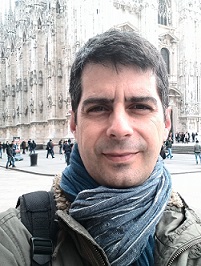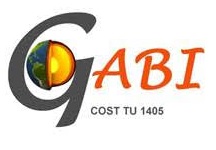Ο Σπύρος είναι Αντιπρόεδρος της δεξαμενής σκέψης με την ονομασία Ελληνική Εταιρεία Ενεργειακής Οικονομίας (Hellenic Association for Energy Economics, HAEE), η οποία αποτελεί επίσημο παράρτημα του γνωστού διεθνούς οργανισμού International Association for Energy Economics, με μέλη σε πάνω από 100 διαφορετικές χώρες και 28 οργανωμένα τοπικά παραρτήματα. Η HAEE είναι ένας μη κερδοσκοπικός οργανισμός που στοχεύει στην προαγωγή δράσεων που αφορούν στο περιβάλλον, στην ενέργεια και στην οικονομία. Ενεργεί ως ένα διεπιστημονικό φόρουμ που προωθεί την ανταλλαγή ιδεών, ερευνητικών αποτελεσμάτων και εμπειριών μεταξύ ακαδημαϊκών, επαγγελματιών, στελεχών επιχειρήσεων και άλλων ενδιαφερόμενων με θέματα που σχετίζονται με την ενέργεια, το περιβάλλον και την οικονομία.
Ο Σπύρος είναι ενεργό μέλος του International Association for Energy Economics (IAEE).
IAEE is an independent, non-profit, global membership organization for business, government, academic and other professionals concerned with energy and related issues in the international community. IAEE advances the knowledge, understanding and application of economics across all aspects of energy and foster communication amongst energy concerned professionals. IAEE facilitates: Worldwide information flow and exchange of ideas on energy issues, High quality research, Development and education of students and energy professionals. IAEE accomplishes this through: Providing leading edge publications and electronic media, Organizing international and regional conferences, Building networks of energy concerned professionals. The IAEE operates through a 17 member Council of elected and appointed members. Council and officer members serve in a voluntary position and are not compensated in any fashion for their services. The Association maintains a conflict of interest policy and each officer/council member must sign and agree to this policy. The IAEE is composed of country affiliates and direct members throughout the world.
Ο Σπύρος είναι ο Εθνικός εκπρόσωπος της χώρας μας και μέλος της Επιτροπής Διαχείρισης της δράσης COST "Novel structural skins" (TU1303).
The urban built environment is being transformed by building skins derived from textile architecture. Working from a basis of tensioned membranes, these highly efficient structural forms are now being integrated with multi-disciplinary technologies to form new multi-functional systems that address the needs and global challenges of the urban built environment. The rapid emergence of lightweight building skins is in response to factors associated with climate change, energy, and workplace health and well-being, and is directly linked to advances in material development, analysis tools, and skills in design. These advances, led by European organisations, universities, companies, and SMEs, have, however, been somewhat fragmented. There is now a need to synthesise the current innovations and technologies from which to establish a platform on which the development of new advancements, products, and applications can be stimulated and produced. The aim of the COST Action is to build a coalition of researchers, academics, architects, engineers, contractors, asset owners, and policy makers that creates this platform. It will be achieved through the sharing of expertise, techniques, facilities and data, by establishing technical consensus, and developing European standardisation for the analysis, design, and realisation of multi-functional building skins.
Ο Σπύρος είναι ο Εθνικός εκπρόσωπος της χώρας μας και μέλος της Επιτροπής Διαχείρισης της δράσης COST "Geothermal energy Applications in Buildings and Infrastructure - GABI" (TU1405).
The increased need for renewable energy sources has led to expansion of shallow geothermal applications for heating and/or cooling of buildings. The integration of heat exchangers in those elements of the structure that interface with the ground, such as foundations, tunnels and diaphragm walls, is particularly attractive because of the inherent cost saving involved in combining a required structural component with the harvesting of geothermal energy. Thermoactive geostructures present the additional benefit of relying on localized resources (the ground) and therefore do not need additional infrastructural investments. By providing an alternative to fossil fuels and reducing peak demand from the grid, they also provide an attractive tool towards energy independence and distributed generation with no adverse impact on the environment. However, the widespread application of this sustainable technology is currently hindered by the large heterogeneity in the development and regulatory framework in European countries. By sharing knowledge and experiences, the use of thermoactive geostructures will increase, especially in countries with less experience. This newly created network will ensure an inclusive and open platform for scientific discussion to define European best practice rules for geothermal applications, promote public awareness and confidence in this technique, and foster advancement in knowledge through collaboration.










